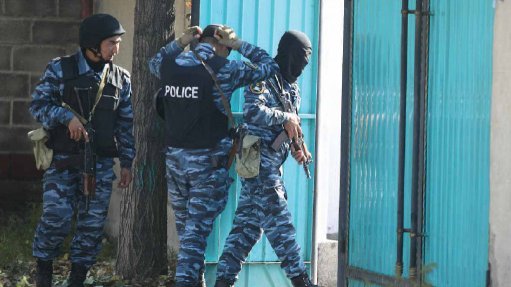
In 2017, “Sukhrob” was convicted of possessing extremist material in Kyrgyzstan after counterterrorism police raided his home and claimed they found a magazine and three other pages of writing from a banned Islamist group.
Sukhrob was not accused of disseminating the banned material, which was several years old. He was not accused of plotting or carrying out violent acts. He repeatedly told the court that the material used to convicted him was planted. Nevertheless, a judge sentenced him to three years of detention. He was released on parole after several months for health reasons but could be returned to custody at any time.
“Nobody saw how the police got that material into their hands—not me, not my family, not my neighbors who witnessed the search,” Sukhrob told Human Rights Watch. “We live in constant fear that at any moment, someone will knock on our door with a warrant and take us to prison on false evidence.”
Sukhrob is one of at least 258 people to be convicted in Kyrgyzstan since 2010 for possessing vaguely defined extremist material under article 299-2 of the Criminal Code, the country’s most widely applied charge against terrorism and extremism suspects. Several hundred suspects are awaiting trial on the charge and the numbers increase each year, with 167 new cases opened during the first nine months of 2016, according to the most recent data available. In many cases the authorities in Kyrgyzstan have been using article 299-2 to imprison suspects solely for non-violent behavior such as possessing banned literature or videos or practicing conservative forms of Islam, a Human Rights Watch investigation found.
Report by the Human Rights Watch